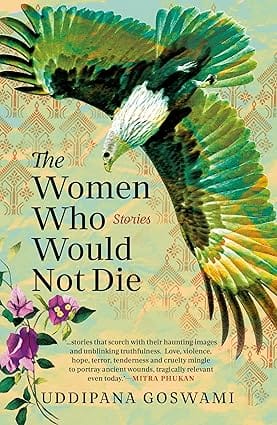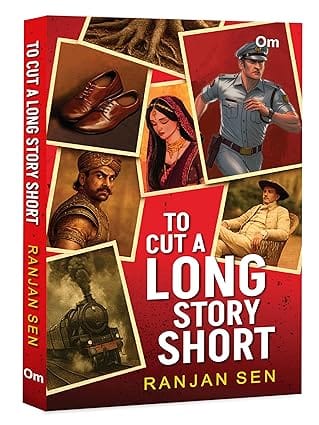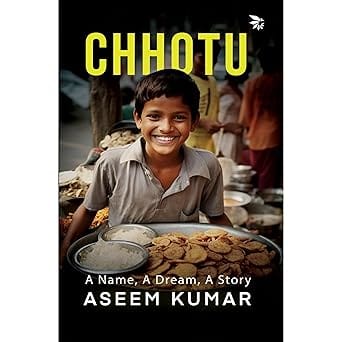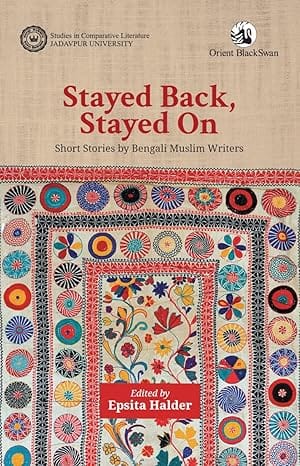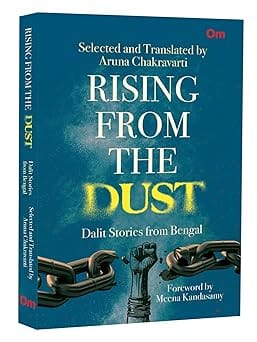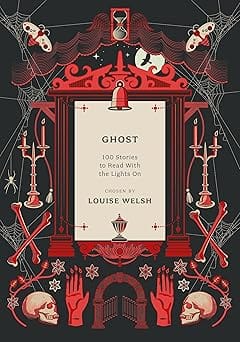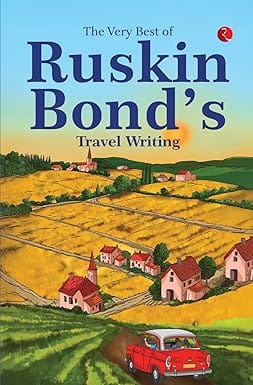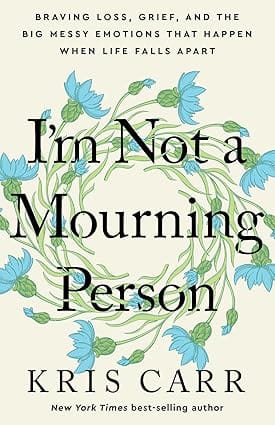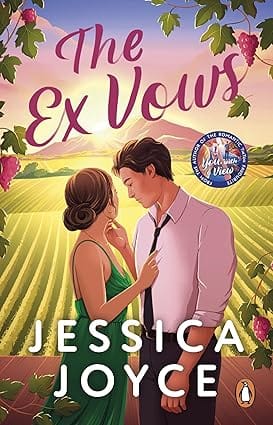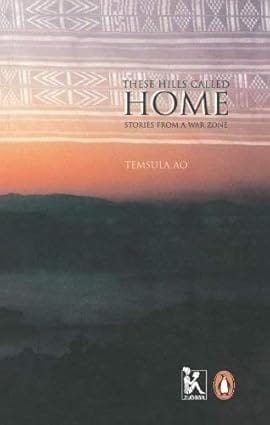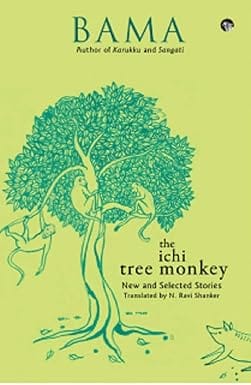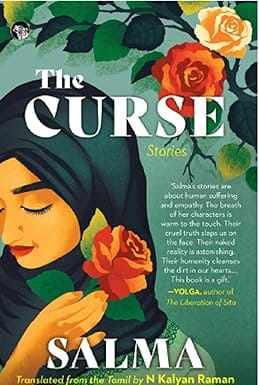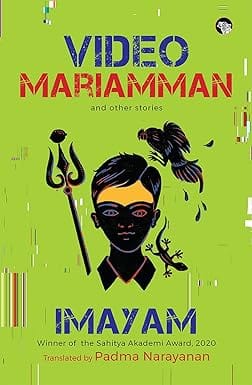- Non-ficton
- Non-ficton
- Contemporary Fiction
- Contemporary Fiction
- Children
- Children
- Comics & Graphic Novels
- Comics & Graphic Novels
- Non-Fiction
- Non-Fiction
- Fiction
- Fiction
In the first story in this collection, ‘Andolan’, the narrator returns to the small town of Barbari where once her father and other community leaders reclaimed forest and wasteland to become zamindars. Barbari saw an influx of new migrant labourers and the town took on a cosmopolitan character, which was harmonious on the surface, masking simmering discontent. When these hidden conflicts erupt, the narrator finds herself a virtual prisoner in a town that is engulfed in the flames of a deadly ethnic riot.
Migrants, women, children and other vulnerable people appear in the rest of the stories constantly faced with violence, both political and personal. In ‘This is How We Lived’, when a woman disappears for a day or two, and returns to wash herself several times in the river, no one in the village protests. It is after all, a trade-off between them and the soldiers—the rape of one woman for the lives of the rest. Ethnic violence is at its most horrifying in ‘Sin and Retribution’ when a young militant learns too late what it is to kill another human being. In ‘I Thought I Knew My Ma’ and ‘I Do Not Love Sam’, love takes on different hues when it is between a high-born Assamese and an Adivasi, a Brahmin and a Muslim.
Folk narratives weave themselves into the stories like ‘Beloved of Flowers’ and ‘The Women Who Would Not Die’, revealing a sense of hope, resilience, and restoration, despite hate and terror.
In this stunning collection, Uddipana Goswami chronicles a deeply fragmented society where people live, love and lose amidst everyday war and violence, but still find ways to cope and heal. In prose that is both poetic and powerful, she conveys through a novelist’s pen a picture of Assam that is more searing and vivid than even the most rigorous reportage.
About the Author
Uddipana Goswami is a writer and feminist peace scholar currently teaching at the School of Conflict Management, Peacebuilding & Development at Kennesaw State University. She is also editor-in-chief of Mukoli: The Magazine for Peace . Uddipana has worked with several multinational media groups, including National Geographic Channel, before teaching internationally at the Tata Institute of Social Sciences, Guwahati College, University of Pennsylvania, Curtis Institute of Music and Johns Hopkins University.
- Home
- Fiction
- Anthologies and Short Stories
- The Women Who Would Not Die Stories
The Women Who Would Not Die Stories
SIZE GUIDE
- ISBN: 9789354479175
- Author: Uddipana Goswami
- Publisher: Speaking Tiger
- Pages: 224
- Format: Hardback
Book Description
In the first story in this collection, ‘Andolan’, the narrator returns to the small town of Barbari where once her father and other community leaders reclaimed forest and wasteland to become zamindars. Barbari saw an influx of new migrant labourers and the town took on a cosmopolitan character, which was harmonious on the surface, masking simmering discontent. When these hidden conflicts erupt, the narrator finds herself a virtual prisoner in a town that is engulfed in the flames of a deadly ethnic riot.
Migrants, women, children and other vulnerable people appear in the rest of the stories constantly faced with violence, both political and personal. In ‘This is How We Lived’, when a woman disappears for a day or two, and returns to wash herself several times in the river, no one in the village protests. It is after all, a trade-off between them and the soldiers—the rape of one woman for the lives of the rest. Ethnic violence is at its most horrifying in ‘Sin and Retribution’ when a young militant learns too late what it is to kill another human being. In ‘I Thought I Knew My Ma’ and ‘I Do Not Love Sam’, love takes on different hues when it is between a high-born Assamese and an Adivasi, a Brahmin and a Muslim.
Folk narratives weave themselves into the stories like ‘Beloved of Flowers’ and ‘The Women Who Would Not Die’, revealing a sense of hope, resilience, and restoration, despite hate and terror.
In this stunning collection, Uddipana Goswami chronicles a deeply fragmented society where people live, love and lose amidst everyday war and violence, but still find ways to cope and heal. In prose that is both poetic and powerful, she conveys through a novelist’s pen a picture of Assam that is more searing and vivid than even the most rigorous reportage.
About the Author
Uddipana Goswami is a writer and feminist peace scholar currently teaching at the School of Conflict Management, Peacebuilding & Development at Kennesaw State University. She is also editor-in-chief of Mukoli: The Magazine for Peace . Uddipana has worked with several multinational media groups, including National Geographic Channel, before teaching internationally at the Tata Institute of Social Sciences, Guwahati College, University of Pennsylvania, Curtis Institute of Music and Johns Hopkins University.
User reviews
NEWSLETTER
Subscribe to get Email Updates!
Thanks for subscribing.
Your response has been recorded.

India's Iconic & Independent Book Store offering a vast selection of books across a variety of genres Since 1978.
"We Believe In The Power of Books" Our mission is to make books accessible to everyone, and to cultivate a culture of reading and learning. We strive to provide a wide range of books, from classic literature, sci-fi and fantasy, to graphic novels, biographies and self-help books, so that everyone can find something to read.
Whether you’re looking for your next great read, a gift for someone special, or just browsing, Midland is here to make your book-buying experience easy and enjoyable.
We are shipping pan India and across the world.
For Bulk Order / Corporate Gifting
 +91 9818282497 |
+91 9818282497 |  [email protected]
[email protected]
Click To Know More
INFORMATION
QUICK LINKS
ADDRESS
Shop No.20, Aurobindo Palace Market, Near Church, New Delhi

